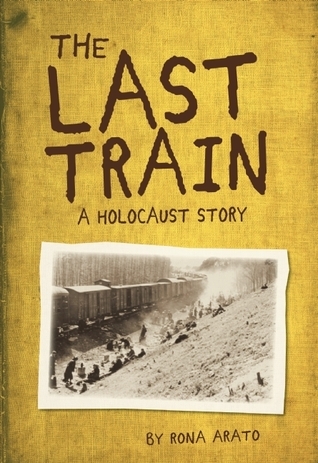
The Last Train: A Holocaust Story
Book Description
A train pulls into a chilling silence, carrying lives shattered by unimaginable horrors. As whispered secrets echo between the carriages, a diverse group of strangers must confront their individual fears while uniting in defiance against the unthinkable. Bonds of friendship are forged amid despair, and courage is tested with each agonizing moment on the last train to nowhere. Will they find the strength to stand against their fate, or will their stories end in darkness? Discover a tale of resilience that challenges the limits of the human spirit—who will survive to share their tale?
Quick Book Summary
"The Last Train: A Holocaust Story" by Rona Arato is a powerful nonfiction account of survival during the Holocaust. Focusing on a group of Jewish prisoners forced onto a train during the final days of World War II, the narrative explores their harrowing journey through Nazi-occupied Europe. As the war nears its end and the fate of these individuals hangs in the balance, the passengers grapple with fear, despair, and the ever-present threat of death. Through shared hardship, bonds of friendship and resistance emerge, allowing glimmers of hope in an otherwise bleak landscape. Arato’s account, based on true stories, emphasizes the remarkable resilience and courage of individuals in the face of unimaginable horror. The book illuminates the ways in which human connections and defiance can inspire survival, even as the worst of humanity is on display.
Summary of Key Ideas
Table of Contents
Survival in the Face of Oppression
"The Last Train: A Holocaust Story" recounts the ordeal of a group of Jewish prisoners as they are herded onto a train destined for an uncertain fate during the waning moments of the Second World War. Torn from their homes and separated from their previous lives, the prisoners face not only the physical torment of starvation, thirst, and cramped conditions but also immense psychological terror. Their journey serves as a microcosm of countless such journeys endured by Holocaust victims, each carriage echoing with whispered secrets, desperation, and the fading hope of rescue, even as the world outside seems to crumble.
The Power of Community and Solidarity
Despite the oppressive nature of their confinement and the dehumanizing measures imposed upon them, the passengers begin to reach out to one another. Small acts of kindness, shared words of encouragement, and the promise to bear witness to each other’s suffering foster new forms of community. Friendships are born even in the bleakest circumstances, revealing the enduring power of human connection and solidarity. These relationships become critical lifelines, helping individuals endure trauma and fostering collective resistance to despair.
Resilience and the Human Spirit
As the journey drags on, the passengers are repeatedly confronted with profound moral choices. The scarcity of food and water forces them to decide whether to share or hoard, and the constant threat of discovery makes trust both precious and perilous. Some choose acts of defiance, both great and small, risking their lives for the sake of others. These moments underscore the complicated nature of ethics under duress and demonstrate the resilience not just of individuals, but of their values in the face of systematic attempts to erase them.
The Importance of Bearing Witness
Eventually, the narrative builds toward liberation, as Allied forces intercept the train and the surviving passengers are freed. This climactic moment is not simply a rescue but a poignant transition from the brutality of the Holocaust to the daunting challenge of survival in a world forever changed. The survivors must relearn how to live, haunted by trauma yet sustained by the conviction that their stories must be told. Their resolve to commemorate the lost and testify to the horrors endured becomes a central theme.
Confronting Moral Choices under Extreme Circumstances
Arato’s narrative refuses to let tragedy define the experience of her subjects. Instead, she honors their courage and underscores the importance of memory. By telling their stories, she preserves the legacy of those who survived and those who did not. "The Last Train" thus serves both as a personal testament and a historical reminder, urging readers never to forget the depths of cruelty humans are capable of, nor the extraordinary strength people can summon in the direst circumstances.
Download This Summary
Get a free PDF of this summary instantly — no email required.





